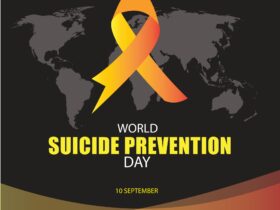Mental Health: A Challenge AND An Opportunity! Part 3
By Novelette Morton
Introduction
The title of Part 1 and Part 2 of this series of Mental Health articles is “Mental Health: A Challenge or An Opportunity?” However, based on feedback received, Part 3 of this series of articles on Mental Health has been changed slightly to “Mental Health: A Challenge AND An Opportunity!” to reflect that it is neither a challenge nor an opportunity, but rather it is both, thus conveying vitality, hope, confidence and bright prospects to many individuals who face mental health challenges.
While Part 1 of the series of articles on Mental Health defined the subject, discussed causes of mental illness, the resources available in St. Kitts and ways to change some of the perceptions of mental health, Part 2 focussed on signs and symptoms of mental health, some key reasons for stigmatisation, treatment options and coping skills, as well as measures the Ministry of Health has adopted to deal with Mental Health. Honesty and openness are avenues for mental wellbeing, and therefore, Part 3 takes the form of an interview, and unveils the thoughts and emotions of two (2) persons who face mental health challenges.
Interviewer: How are you coping with your mental health challenges?
Interviewee A: Mental Health challenges can be very overwhelming, but I am coping better and improving over the past year. Previously, my coping mechanisms were not healthy – drinking without limit, going for walks and ending up in places that were not in my best interest, and using sex as punishment as I would be hurt emotionally, mentally and physically. However, it is important to find ways to cope.
Some of my coping strategies are therapy and medication but I sometimes do not like to take medication. However, my therapists stress the importance of self-care. It is important to seek professional help and support as there is no shame in seeking help. However, family support and friends are also critical to the management of the illness.
Interviewee B: I seek out resources that can help me deal with my mental health problems. There is a site called www.betterhelp.com where there are therapists available to help online.
Interviewer: Do you feel ashamed of your mental health challenges?
Interviewee A: I do, because most people do not view mental health challenges as an illness. I have been told that people with mental health challenges are looking for attention or looking for an excuse for behaving the way they do. I safeguard myself by not saying anything and praying and hoping that I do not have an episode in front of others. If such a situation occurs, I blame it on my asthma condition when it was really an anxiety attack.
Interviewee B: I do. I had severe depression after my mom’s passing. To make matters worse, I was involved in an accident, which left me with a head injury. I had to have brain surgery. The isolation after the surgery made my depression worse so I was placed on antipsychotic medication as I was erratic. Even though I have made attempts to discuss my situation with my family, to this day, they tell me to forget that the incident ever happened. I was made to feel ashamed, and my family was ashamed of me as they even lied about my diagnosis.
Interviewer: What do you think needs to be done for people to change their perceptions?
Interviewee B: There needs to be more awareness about mental health issues. Going to a psychologist should be normalised. There has been a lot of darkness and mystery surrounding mental health issues – there needs to be more light. Many people suffer but go untreated because they don’t know or they are ashamed to get help.
Interviewer: Do you think the public and private sectors are sympathetic to employees living with mental health challenges?
Interviewee A: I don’t want to blatantly say No, but I would really have to say No (chuckles). The issue of mental health in the workplace is a complex one. While there has been some progress, the public and private sectors have a long way to go in terms of providing adequate support for employees living with such conditions. More education and awareness are required to foster a more empathetic and understanding work environment for those affected.
Interviewee B: There is greater awareness, so things are getting better. However, I feel that often people do not want to deal with persons with mental health challenges. They see them as a liability or as some religious people think, a walking and talking demonic manifestation.
Interviewer: Are the services provided by the health and social services sectors adequate?
Interviewee A: The health and social services sectors play a crucial role in providing essential care. However, there is a lack of funding and resources, leading to long waiting times and limited access to care. Additionally, the quality of the care is not up to par because some sufferers reach a level where they are of no use to themselves, and if you don’t have the money, that is also a risk. If policymakers and stakeholders address these constraints and strive to ensure that individuals have access to high-quality, timely healthcare and social services, things would be so much better.
Conclusion
Part 3 sought to capture the essence of Glenn Close’s statement, “What mental health needs is more sunlight, more candor and more unashamed conversation.”
The three-part series of articles candidly articulated the complexities surrounding mental health, by providing a comprehensive overview of the illness, reasons for stigmatisation, coping strategies, the need for education and awareness, adequate funding and resources, and the way forward for treatment and care. It is hoped that through this medium mental health is demystified and frank discussion ensues. There need be no dilemma associated with mental health as policymakers, professionals, communities, families and sufferers together pursue strategies to treat Mental Health as a challenge AND an opportunity!
“To be in God’s keeping is surely a blessing, For though life is often dark and distressing, No day is too dark and no burden too great That God in His love cannot penetrate.”
Helen Steiner Rice
E-Book: How To Win Your War Against Depression
It can be incredibly hard to know whether you’re just dealing with everyday stress or something deeper like depression. The truth is, depression comes in many forms, often rooted in past experiences — from childhood challenges to sudden life changes like job loss, trauma, or the death of a loved one.
This powerful e-book helps you understand your emotions, uncover hidden triggers, and take the first step toward healing. With expert insights and practical tools, you’ll learn how to identify the root causes of your struggles and discover proven strategies to manage, overcome, and move forward with confidence.
Your path to clarity, healing, and emotional freedom starts here. Download your copy today and take control of your mental health.
US$0.99
View Part 1 of this article at this link:
Mental Health: A Challenge or An Opportunity?
View Part 2 at this link:
https://caribbeanvybes.com/mental-health-a-challenge-or-an-opportunity-part-2/

Other articles you may like
Depression What Women Should Know
https://caribbeanvybes.com/depression-what-women-should-know/
The Secret to Managing Your Emotional Triggers
The Secret to Managing Your Emotional Triggers






























